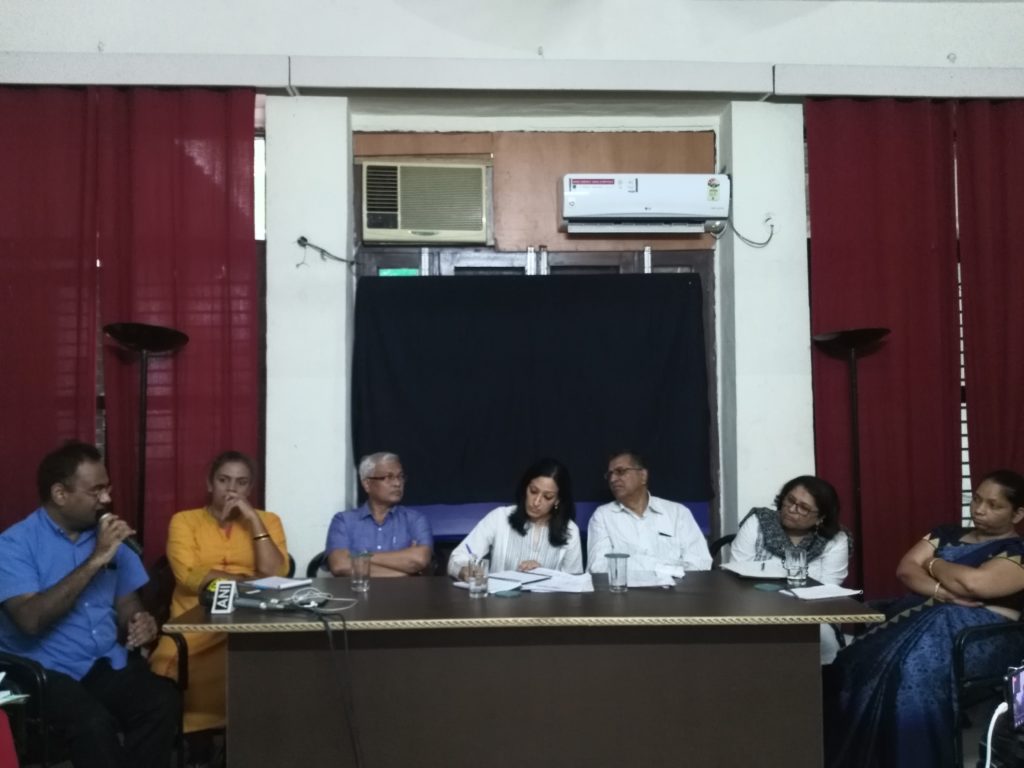The Anti-Trafficking Bill, 2018: A Cause for Distress
Various stakeholders question the validity, purpose and effect of the new Bill.

T
wo sex workers fell off a building in Grant Road, Mumbai while the police was conducting a routine check in the locality to crack down on the prostitution dens. Such is the horror of the already existing multifarious laws on sex workers, which is now being supplemented with an altogether new legislation. The Monsoon Session of the Parliament is likely to see The Trafficking of Persons (Prevention, Protection and Rehabilitation) Bill, 2018 to be introduced by the Ministry of Women and Child Development (MWCD). The said Bill has been highly criticised and opposed.
Civil Society groups, today held a Press Conference in New Delhi, wherein representatives from various NGOs, legal experts and workers’ union expressed their displeasure and criticism of the ‘draconian’ Bill that is sought to be passed in the upcoming session.
The MWCD in May 2016 came up with a draft Bill for the purpose of unifying and integrating the existing legislations on the issue of trafficking. Another version of the Bill was sent to the Cabinet, got approved and is now slated to be introduced in the Parliament. In April 2018, Dr. Shashi Tharoor, along with representatives of other social worker groups like Naz Foundation, SANGRAM and National Network of Sex Workers met the Minister of Women and Child Development, Smt Maneka Gandhi and presented a petition consisting of comments and endorsements from 30 organisations, 247 lawyers and activists, and around 4,000 sex workers.
“The Bill is a symptom of thinking prevailing in the society. The huge number of laws being brought and implemented so frequently is nothing more than mere response to the public emotions,” commented Enakshi Ganguly from HAQ Centre for Child Rights.
The said Bill, not directly but indirectly targets the sex workers and aims to eliminate them. Nisha Gulur, of the National Network of Sex Workers, a sex worker and a transwoman, made the observation that the said Bill has been made without considering the concerned communities that it targets at. The Bill does not in any way differentiate among the sex workers who are forced into it or trafficked and those who have voluntarily opted for it. Nisha claims that the forced rehabilitation is not needed in the latter case, since there is violation of the basic human rights of a person. “How can a magistrate decide where I will stay? This is in clear violation of my human rights. I am a sex worker by choice. Sex work like any other work is dignified work,” she says.
Another flaw pointed out in the Bill is how it uses ‘vague’ and ‘overbroad provisions’ with regard to offences, as it introduces offences which lack culpability and criminalises conduct that is innocent. These provisions kick in even when no trafficking has taken place; a mere possibility of someone getting trafficked is sufficient for the police to arrest and prosecute. It criminalises a host of activities including electronic communication which “may lead to” or are “likely to lead to” trafficking.Anand Grover, Senior Advocate, pointed out that “The Supreme Court has struck down similarly vague provisions of the IT Act, 2000. If this Bill is passed, it will meet with the same fate”.
These vague provisions pose a serious threat to civil liberties and the freedom of expression, as was pointed out by Tripti Tandon, a lawyer with NGO Lawyer’s Collective. The Bill focusses highly on the rehabilitation of victims of trafficking. The problem with this is that the Bill provides solutions which have been rejected by the United Nations. The ‘protection homes’ and ‘rehabilitation homes’ have shown sub-optimal and even counter-productive results.
The UN Special Rapporteur on Trafficking in Persons, especially Women and Children, has noted that such measures “inevitably compound the harm already experienced by trafficked persons and denies them the rights to which they are entitled”.
Moreover, this rehabilitation process overlooks ‘decisional autonomy’ of the victims, as it essentially forces them into rehabilitation. Kusum, President All India Network of Sex Workers, brought forth the point that sex workers today are engaged in all public and social issues and have made their contributions in all matters of social importance.
Dr. Prabha Kotiswaran, stressed on the point that trafficking today is not limited to being a crime, rather a developmental issue. What the Bill brings forth is a very old idea of trafficking. She adds that the Bill has the hazardous potential of closing down homes, factories or farms which are ‘to be used’ for trafficking.
It needs to be noted that the panel constituted by the Supreme Court on prevention of trafficking and rehabilitation of sex workers who wish to leave sex work, submitted their suggestions and recommendations, which were based on in depth multi-stakeholder deliberations but were “not considered”, according to Dr Samarjit Jana, a member on the panel.
In essence, the Bill, in its present form cannot be “implemented”. It needs to either undergo certain changes or be referred to a standing committee that would incorporate the concerns of the various stakeholders.
